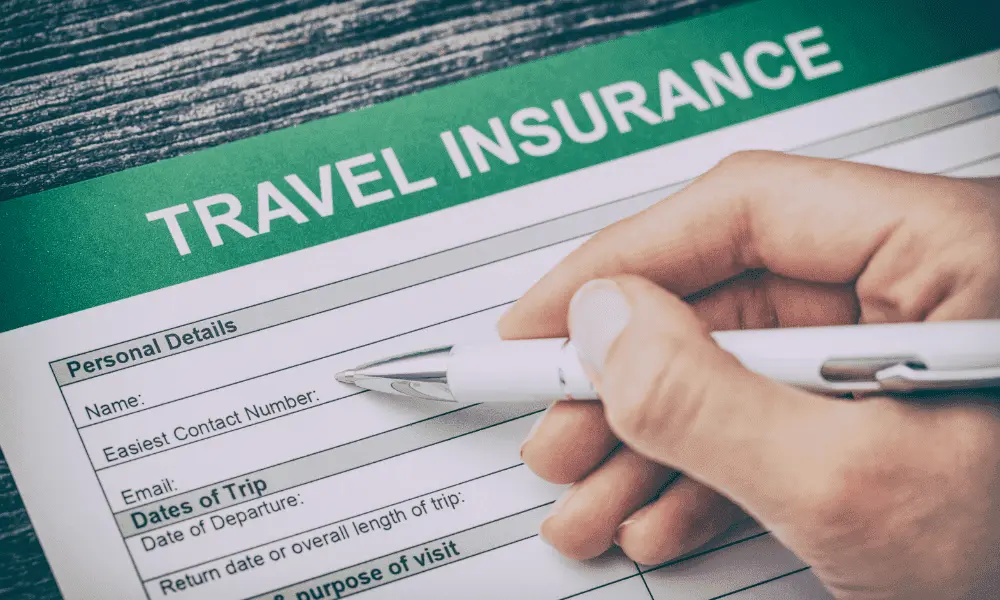Understanding the Intricacies of Trip Insurance
When planning a trip, whether it’s a serene beach vacation or a bustling city tour, unexpected events can throw a wrench into even the best-laid plans. That’s where trip insurance comes into play, offering peace of mind and essential protection against the unpredictable. But how does trip insurance work, and why is it so crucial for travelers?
Trip insurance, commonly referred to as travel insurance, is a type of policy offered by insurance companies designed to cover unforeseen losses incurred while traveling. These losses can range from minor inconveniences like baggage delays to significant financial investments such as nonrefundable trip costs.
Investing in travel insurance can make a significant difference in handling potential setbacks. With comprehensive travel insurance, travelers can reclaim nonrefundable expenses related to trip cancellations, interruptions, and medical emergencies abroad. This type of insurance is particularly valuable for trips involving substantial upfront costs or travel to regions where potential risks could lead to high unexpected expenses.

Types of Trip Insurance
Before diving into the specifics, it’s important to understand the broad coverage options available. Each type addresses different aspects of travel risks, ensuring there’s a safety net for various scenarios that might arise during your journey.
Trip Cancellation Insurance
Trip cancellation coverage allows you to recover prepaid, nonrefundable expenses if your trip is canceled due to a covered reason, such as severe weather or illness. Travel insurance policies detail specific eligible reasons for cancellation, ensuring transparency and understanding of coverage limits.
Trip Interruption Insurance
If you need to cut your trip short due to an emergency back home or a medical issue while traveling, trip delay coverage kicks in. It not only covers the unused portion of your travel but also may cover the additional costs of a last-minute flight home.
Medical Coverage
One of the most critical types of travel insurance, medical coverage, pays for the cost of treatment associated with a medical emergency while traveling. This can include everything from a doctor’s visit for a minor illness to more severe emergencies requiring hospitalization or even medical evacuation.
Baggage Protection
Baggage protection covers you if your luggage is lost, stolen, or damaged during your trip. This coverage is especially useful for travelers carrying expensive or essential items.
Emergency Medical Evacuation Insurance
In case of a medical emergency, evacuation insurance can cover the cost of transporting you to a medical facility or even back home, if necessary. This type of coverage is crucial for those traveling to remote areas or regions with less-capable medical facilities.
Coverage Details
Understanding travel insurance coverage is key to utilizing it effectively when needed.
Coverage Limits
Every travel insurance policy has specific limits on how much it will pay for various types of claims. It’s important to choose a policy with adequate limits to cover the potential costs you might face.
Covered Events
These are specific scenarios under which your insurance will provide coverage. Common examples include illness, injury, theft, and natural disasters, but it’s essential to read the fine print to understand all the covered reasons.
Exclusions
Travel insurance policies also have exclusions, which are scenarios where coverage won’t apply. Common exclusions include events known before purchasing the policy, self-inflicted injuries, or problems resulting from high-risk activities not covered under the policy.
Pre-existing Conditions
Most policies do not cover pre-existing medical conditions unless you qualify for a waiver of that exclusion. Understanding how your insurance company defines a pre-existing condition is crucial.
High-Risk Activities
If your travel plans include adventure sports or other high-risk activities, make sure your insurance covers these. Often, a standard policy may not cover accidents occurring from activities like hang gliding, scuba diving, or bungee jumping unless you purchase additional coverage.
How Trip Insurance Works
Understanding the mechanics of how trip insurance functions from purchasing to claiming can simplify the process and clarify what to expect at each step.
Purchasing Process & Policy Activation
The journey to securing trip insurance begins with selecting a policy that suits your travel needs. This involves comparing different plans from various travel insurance companies and assessing the coverage options against the nature of your trip and the potential risks involved. Once you choose a policy, the purchase can typically be made online through the insurance company’s website, where you will need to provide details about your trip and the people insured. The policy becomes active from the date you choose, often starting from the day of your departure.
Claim Process & Reimbursement Process
If an issue arises during your trip, such as emergency medical care, trip interruption, or baggage loss, you will need to file a claim with your travel insurance company. This process usually involves submitting a claim form along with any supporting documentation that proves your loss or medical expenses (like receipts, medical reports, or a statement from a travel provider). Once the claim is approved, the reimbursement is processed based on the terms of your policy. It’s important to understand the expected time frames and the types of documentation required to streamline the claim process.
Factors Affecting Trip Insurance
The cost and coverage of trip insurance can vary significantly based on several key factors:
Destination: The location you are traveling to can influence the price and terms of your travel insurance. High-risk destinations or areas prone to natural disasters might require more comprehensive coverage, increasing the cost.
Trip Duration: The length of your stay also plays a key role. Longer trips often result in higher premiums because the extended duration increases the likelihood of needing to use the insurance.
Age and Health of Traveler: Generally, older travelers face higher costs for travel insurance due to the increased risk of health issues before or during the trip.
Cost of Trip: The total cost of your trip significantly influences the cost of your travel insurance. More expensive trips typically lead to higher insurance premiums because the potential financial loss is greater if the trip is disrupted or canceled. Generally, travel insurance premiums can range from 4% to 10% of the total trip cost, depending on the policy’s comprehensiveness and the coverage included.
Benefits of Trip Insurance
Trip insurance is fundamentally designed to safeguard your travel investments against unforeseen events. It covers a range of financial losses, from nonrefundable tickets and trip interruption coverage to emergency medical costs that might not be covered by your standard health insurance. This can be significant for expensive trips, where the potential financial loss could be substantial.
Beyond the financial aspects, the real value of trip insurance often lies in the peace of mind it provides. Knowing that you are covered against potential emergencies can make your travel experience far more enjoyable and stress-free. Whether it’s dealing with canceled flights, lost baggage, or health issues, having that safety net lets you focus on enjoying your journey.

Choosing the Right Policy
Choosing the right trip insurance policy begins with a clear assessment of your needs. Consider the nature of your trip, the destination, the duration, and who is traveling. Are you going on a short domestic trip or an extended overseas adventure? Will you be engaging in adventure sports, or do you have specific medical needs? These factors dictate the type of coverage you may require.
Once you have a good understanding of your needs, start comparing plans from different travel insurance companies. Look for plans that offer the best value for your specific requirements rather than simply opting for the cheapest or the most comprehensive one.
It’s essential to read the fine print of each policy option. Pay attention to details such as coverage limits, deductibles, exclusions, and particularly the reasons that might trigger a claim.
Understanding Policy Terms
Understanding the terms of your travel insurance policy is key to ensuring it meets your expectations. Deductibles are one of the most vital aspects to understand; this is the amount you’ll need to pay out of pocket before the insurance covers the rest. Make sure you are comfortable with this amount before purchasing a policy.
Tips for Maximizing Trip Insurance
To maximize the benefits of your trip insurance, consider booking your insurance well in advance of your trip. Early purchase can be particularly beneficial as some policies include coverage for pre-departure events, such as trip cancellation due to illness or a job loss, which might occur after booking your trip but before departing.
Understanding the extent of your coverage is also important; know what is covered and what is not. This understanding can help you make informed decisions, such as whether to pay a little extra for additional coverage areas.
Finally, keeping meticulous documentation of all your travel expenses and any communications regarding delays, cancellations, or medical advice is vital. This documentation will be invaluable if you need to file a claim, ensuring that the process goes as smoothly as possible.
Summary of Benefits
Secure your next adventure with the right trip insurance and travel with peace of mind. Understanding the ins and outs of various coverage options ensures that you are well-prepared to handle the unexpected, safeguarding both your journey and investment. Take the time to assess your specific travel needs, diligently compare policies, and choose the one that offers the best protection for your scenario.
With the ideal travel insurance in hand, you can focus on enjoying your trip, confident in the knowledge that you are covered in any eventuality. Good travel insurance isn’t just about security; it’s an essential part of your travel toolkit!